News Update
Tezzbuzz|23-01-2025
The Table Tennis Federation of India (TTFI) has implemented a rigorous racquet control process during the 86th Senior Nationals in Surat. This initiative, aligned with ITTF standards, ensures players compete with legal racquets, promoting fairness and integrity in the sport. In the latest episode of Sports BuzzTTFI officials explain what is ‘Racket Control’.
Technical officials are testing racquets for flatness, thickness, and compliance with the LARC (List of Authorized Racket Coverings) while also checking for volatile organic compound (VOC) levels. India now has a qualified ITTF-certified ‘racket controller’ Amit Singh, marking a significant step forward in maintaining fair play.
Ensuring legal racquets
“We want to ensure players play with legal racquets to uphold integrity and fair play,” said Ganeshan Neelakanta Iyer, Competition Manager.
Also read: PSPB, RSPB win team titles after thrilling finals
The process includes voluntary pre-match testing and mandatory checks before matches. Racquets are assessed for flatness, covering thickness, VOC levels, and conformity with LARC standards. If a racquet fails any parameter, players must use a backup racquet, which is tested post-match.
Consequences of Illegal racquets
Officials are firm in their commitment to fair play. “If a racquet fails post-match testing, the referee has the authority to disqualify the player,” the official stated. Players are becoming more cautious, understanding that repeated violations could result in bans from future tournaments.
Also read: Exclusive | Massimo Costantini: ‘Want to make India a table tennis powerhouse’
The initiative addresses the issue of unauthorized materials like boosters that give players an unfair advantage. During previous championships, 251 racquets were tested, with 23 deemed illegal.
Detailed testing process
The testing process involves advanced equipment, including a VOC machine, flatness device, and thickness measurement tools. Each racquet undergoes a series of checks:
VOC levels are measured to detect harmful solvents.
Flatness is assessed at multiple points.
Thickness is calculated at four places on each racquet side.
Amit explained, “We aim to check at least 40 to 50 racquets daily. This programme is crucial for fair play.”
Education and awareness
Beyond enforcing rules, the programme educates players on maintaining legal racquets. Players are encouraged to use high-quality materials and adhere to ITTF regulations.
“This initiative reflects ITTF and TTFI’s commitment to fair play,” added the official, who expressed gratitude for being nominated as a ‘racket controller’.
The pre- and post-match checks on racquets aim to eliminate illegal racquets, ensuring a level playing field for all participants.
(The content above has been generated using a fine-tuned AI model. To ensure accuracy, quality, and editorial integrity, we employ a Human-In-The-Loop (HITL) process. While AI assists in creating the initial draft, our experienced editorial team carefully reviews, edits, and refines the content before publication. At The Federal, we combine the efficiency of AI with the expertise of human editors to deliver reliable and insightful journalism.)

Hardik Pandya is key to India’s ‘different’ approach post T20 World Cup: Suryakumar

‘The way they talk.’: Abhishek Sharma thanks head coach and captain after match-winning knock in 1st T20I v England

IPL preferred over Domestic Cricket as Ranji Trophy match shifted from Original Venue

Why Mohammed Shami didn’t play in India vs England 1st T20I? A limp and a Gambhir masterstroke







